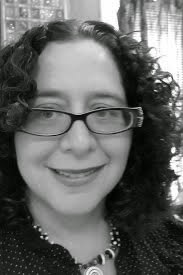 |
| Joanna Fuhrman |
Joanna Fuhrman’s "The Year of Yellow Butterflies" ( Hanging Loose Press-2015)
Review by Amanda Gnau
Joanna Fuhrman’s "The Year of Yellow Butterflies" takes profound elements of surrealism accompanied with a feeling of pure nostalgia, that allows for a mind boggling read. Each poem in this book is able to captivate the reader and create a desire in their mind to understand the purpose and motive. Each poem tells a part of her story growing up and figuring out what life is all about. At first glance, the meanings and messages hidden in the work can seem uncanny and improbable to grasp. Fuhrman’s writing displays a large command of vocabulary and unconventional ways of describing people, events, places, and objects around her.
Fuhrman’s poetry in this book represents the impact of technology, gender stereotyping, and varying cultures on people. The subjects written about in this collection are aspects in life that typically have a strong effect on the mind and the body in various ways. The bouncing back and forth between the mind and body can be seen in Fuhrman’s style of writing, evidenced when she turns back and forth from reality to a sort of illusory world. In an untitled poem she writes, “So many people forgot their babies that year they needed to open baby libraries across the country…I liked to go to the baby library at my lunch break. Under the mounds of congealing drool, I could finally remember my own lost babyhood – how blurry it was, how loud.” Her diligent choice of descriptions and images is able to lure the reader in to learn more about these issues. With the use of repetition, consonance, outstanding imagery, and personification, this book can be seen as one of Fuhrman’s best. Her poems such as “New Eyes for the New Year”, “The Letter”, and “Dear November”, are just a few examples in which Fuhrman uses these literary devices in order to create a read that is enjoyable in terms of the sound it creates in the reader’s mind. Fuhrman’s choice of utilizing euphemisms for serious topics so that the reader feels more comfortable addressing important issues is a wise choice that has worked to her advantage.
The middle section of this collection, with the same title as the book, is what makes The Year of Yellow Butterflies exceed any set expectations the reader may have had before diving in. Fuhrman twists from childhood to the more serious times of her life where she tried to be a mature adult. Her poems reflect her years in existence when perhaps she was not able to grasp or cope with certain issues occurring right before her eyes, and was left to produce these pictures and zones that seem to be derived from some sort of make believe era in time and space. Her interpretation and ability to place conflicts in a light that is easier for the everyday person to understand is one of her strongest traits as a poet and author. One untitled piece in the collection compares the layers of the life that we are all living, to the layers of clothing a woman would wear, “holes revealing leggings,…little rips, glimpses of neon paisley tights…through the holes we could see little patches of perfect skin-colored knee-makeup…a gap where the real skin would peek out…another hole and in it a surgically implanted transparent window reveling veins…muscles, predictable bones”. This comparison, although unconventional, is considerably concrete and hits the reader abruptly with a feeling of grief and confusion.
It seems that this book is a complete success for Fuhrman and will grab the attention of a wide range of audiences. Her style of writing can be best described as fresh, innovative, suspenseful, and most importantly, thought provoking. The Year of Yellow Butterflies is recommended to those who wish to have their opinions and minds altered with while enjoying a systematic syntax of poetry.
**********************************************************************************
Amanda Gnau is a sophomore English major at Endicott College. She has taken courses in advanced poetry, creative writing, and literary criticism and interpretation. Along with having a passion for new and contemporary works, Amanda also enjoys earlier poets such as John Milton and Alexander Pope. Her plan for the future is to continue writing poetry in her spare time and attend law school in the near future.




































No comments:
Post a Comment